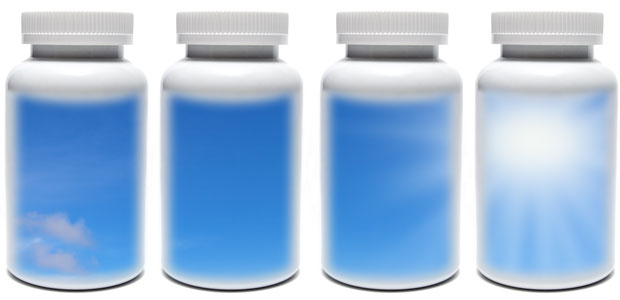Advertisement
The Sunshine Vitamin
Its role in cancer prevention

A growing body of evidence supports the link between vitamin D and cancer prevention.
Research shows that adequate amounts of the “sunshine vitamin” help reduce the risk of colorectal, breast, and prostate cancers.
Vitamin D gets its nickname because people produce the substance after bare skin is exposed to the sun’s ultraviolet radiation.
Rushing out to sunbathe isn’t the answer, though: too much time in the sun—even 10 minutes a day—can increase the risk of skin cancer.
It’s not fully understood how vitamin D diminishes cancer risk, but it is thought the substance promotes cellular differentiation and decreases cancer cell growth.
Consider the evidence
A study published in the American Journal of Clinical Nutrition found that postmenopausal women who took calcium and vitamin D supplements had a 60 percent lower overall incidence of cancer.
In the American Cancer Society’s Cancer Prevention Study II Nutrition Cohort, the diet, medical history, and lifestyle of more than 120,000 men and women were analyzed. Men who had the highest intakes of vitamin D (through their diet and supplement use) had a lower risk of colorectal cancer than men with the lowest amounts.
Other strengths of the sunshine vitamin
The sunshine vitamin plays a key role in several physiological processes that are essential for good health, including
- the formation, growth, and repair of bones
- normal calcium absorption
- immune function
- improved muscle strength
- reducing inflammation
Vitamin D deficiency can lead to rickets (a condition in children marked by soft and deformed bones) and osteoporosis.
Sources of vitamin D
Because of Canada’s northern latitude, the sun’s rays are weaker in the fall and winter. Canadian adults should consider taking vitamin D supplementation of 1,000 international units (IU) a day during the fall and winter, and, in some cases, all year round.
People who are especially at risk of having lower vitamin D levels include
- those who are older
- people with dark skin
- people who don’t spend much time outdoors
- those who wear clothing that covers most of their skin
Vitamin D is also found in some foods, such as fatty fish, fish liver oil, and eggs, and to a lesser extent meat and cheese. Most dietary vitamin D comes from fortified foods, such as milk, juice, yogourt, bread, and breakfast cereals.





